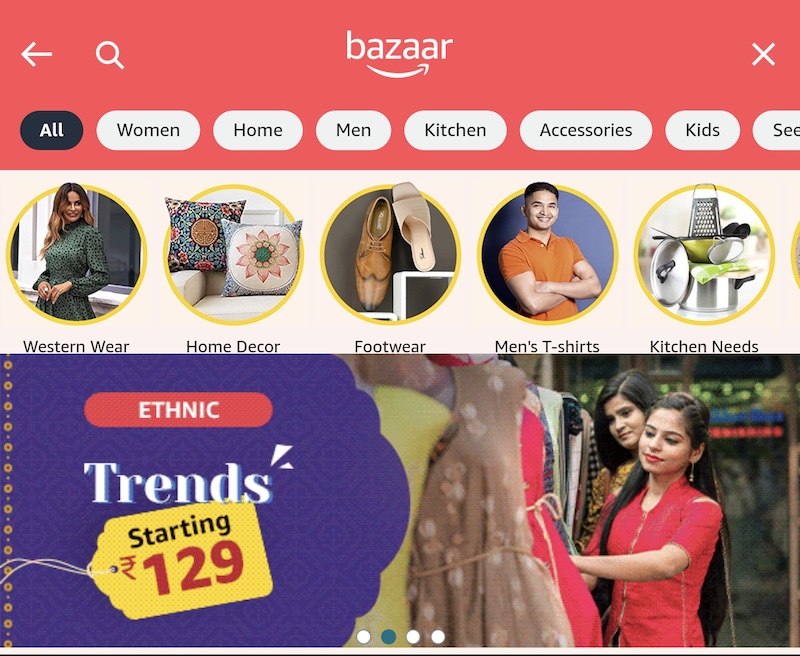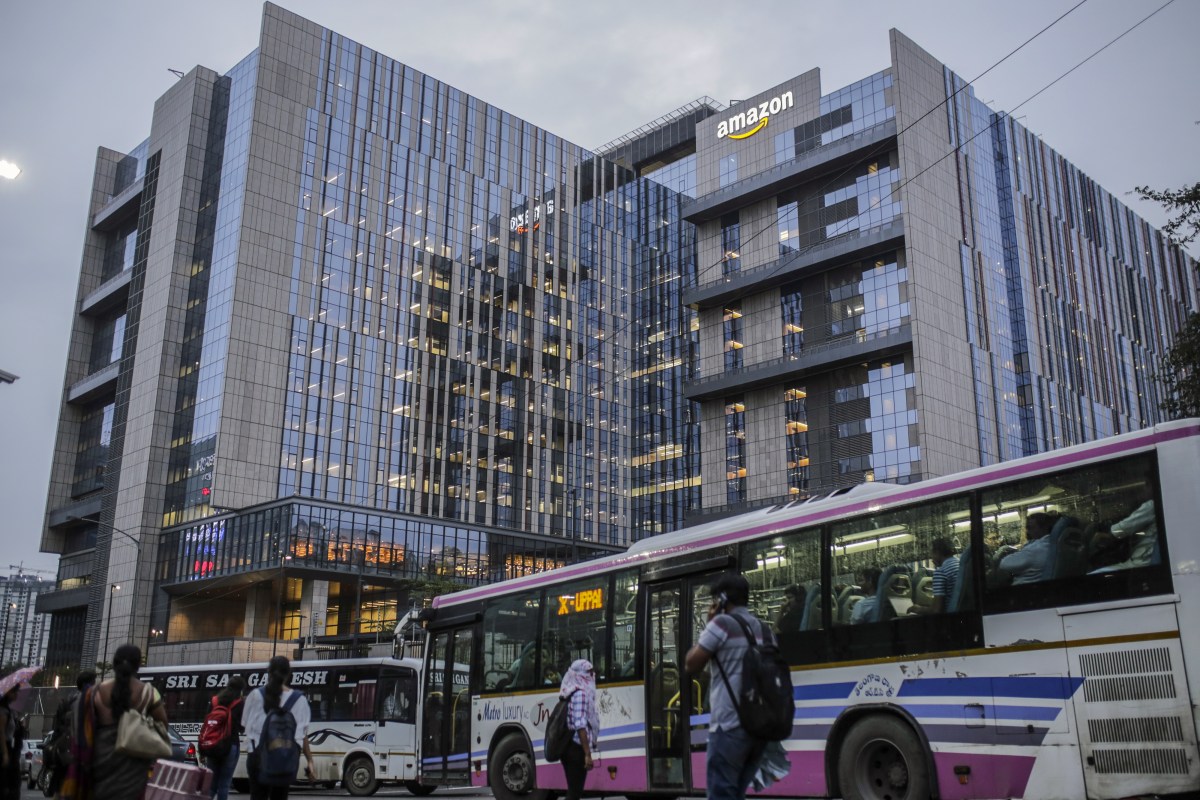Amazon has quietly launched a “special store” named Bazaar in India, offering affordable and fashionable lifestyle products as part of its strategy to compete with Walmart-owned Flipkart and Reliance’s Ajio in the Indian fast-fashion market.
The world’s largest e-commerce company has introduced the Bazaar store on its India Android app. Amazon began enlisting sellers for the store in February, providing them with benefits like hassle-free delivery, zero referral fees, and access to a large customer base.
“You can find items ranging from clothing, accessories, and jewelry to handbags, shoes, traditional and western wear, as well as a wide variety of home goods including kitchenware, towels, bed linens, and décor items,” the company states on a support page.
As the demand for affordable fast-fashion grows in India, Amazon’s move to strengthen its presence in this category is essential, considering its historical struggles in this segment in the country, according to analysts at Bernstein.
Bazaar offers “trendy” t-shirts from 129 Indian rupees ($1.55) and sneakers priced under $3.
India is a vital market for Amazon, which has invested over $11 billion in the country so far. While AWS remains the top cloud provider in India, Amazon’s e-commerce arm currently holds the second position behind Flipkart.
Last year, CEO Andy Jassy announced plans to invest $12.7 billion in AWS in India by 2030, alongside committing over $2 billion to the e-commerce division during the same period.

Screenshot of Amazon India Android app. (Image: TechCrunch)
The fast-fashion sector in India has seen significant growth, with local startups taking inspiration from global brands like Zara, H&M, and Uniqlo. While Flipkart’s Myntra dominates the category, Reliance’s Ajio has gained about 30% market share in a year, according to Bernstein.
Ajio launched its fast-fashion platform called Ajio Street last year, offering a wide range of clothing and accessories starting at 199 Indian rupees ($2.4). The platform guarantees the lowest prices, free delivery, and easy returns.
Shein, a global fast-fashion brand previously banned in India, is planning a comeback through a partnership with Reliance, which also operates Reliance Retail, the country’s largest retail chain.


